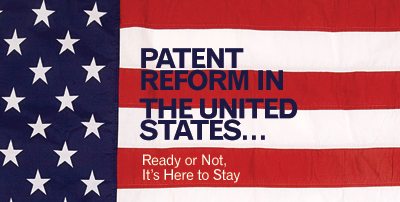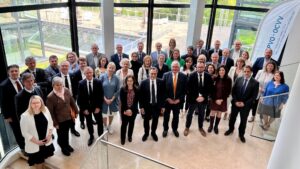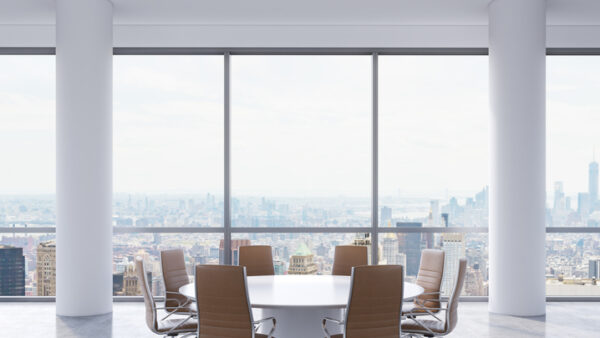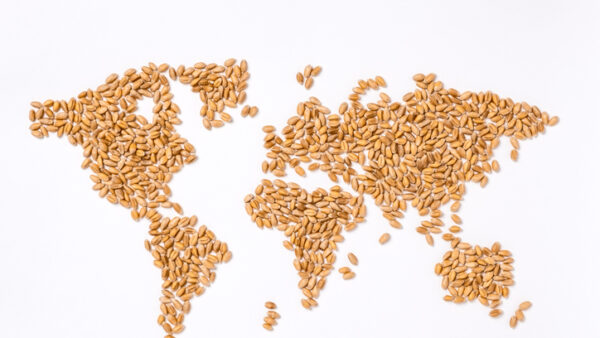U.S. patent law has not experienced comprehensive changes in the past 60 years. However, the world of U.S. patents changed as we know it on September 16, 2011, when President Barack Obama signed into law the Leahy-Smith America Invents Act. The AIA puts in motion a set of comprehensive revisions to the U.S. patent laws that are purported to bring the U.S. patent laws more in line with the patent offices of the rest of the world.
Here, we break down the revisions to U.S. patent laws and explore their impact on the seed industry.
Change from First-to-Invent to First-Inventor-to-File
As of March 16, 2013, the U.S. patent system will move from a first-to-invent to a first-inventor-to-file system. Currently, if two inventors file a U.S. patent application for the same claimed invention, the inventor who both first conceives, and also reduces to practice the claimed invention, is granted patent rights to that invention. With the implementation of AIA, when two inventors file for the same claimed invention, the inventor who files first will be granted patent rights to the invention. While the U.S. system still retains the requirement that an applicant for patent must have invented the claimed subject matter, the first-to-file system creates a “race to the office” scenario, encouraging inventors and companies that are competing to develop similar technologies, such as new traits, to file early.
Prioritized Examination
As of September 26, 2011, applicants will be able to file a request for prioritized examination of any original utility or plant patent application. The fee for a request for prioritized examination is USD$4,800 for large entities and $2,400 for small entities. For fiscal year 2011, the number of prioritized requests has been limited to 10,000. The benefit of prioritized examination is that it speeds up the examination process by completing examination in about one year, versus the current course of examination, which typically begins anywhere from two to five years after an application for patent is filed. Prioritized examination may be a valuable mechanism for inventors and companies to get more complicated patent applications, such as trait-based or breeding method patents, through to issuance more quickly than if the applications are filed without a prioritized examination request.
Best Mode
Currently, the requirement for every patent application is that it must disclose the “best mode” to practice the invention. Notwithstanding this ongoing requirement, as of September 16, 2011, the failure to disclose the best mode shall not be used to cancel, invalidate or hold unenforceable a patent (i.e. in litigation situations).
Fee Changes
The AIA provides for a number of changes regarding fees, with differing effective dates. Some of the highlights of the fee changes are as follows:
• As of September 26, 2011, there is a 15 percent surcharge on patent fees.
• As of September 16, 2011, the AIA provides for the establishment of “micro-entities.” Micro-entities receive a substantial discount of 75 percent off patent fees. A micro-entity must be a small entity; additionally, the inventor must not have been named as an inventor on more than four previously-filed patent applications, and must maintain a certain gross income. The micro-entity is not obligated to assign, grant or convey ownership interest in the application to another entity with a particular gross income.
• As of November 15, 2011, the AIA calls for charging an additional fee of $400 for each patent application that is not filed electronically, excluding design, plant, or provisional applications.
False Marking
As of September 16, 2011, only parties who have “suffered a competitive injury” as a result of false marking of a product may file a suit. Additionally, included in the new rules is the stipulation that the marking of a product that was previously covered by an unexpired patent, but has now expired, shall no longer be considered false marking. This change may be a huge relief to seed companies who are constantly required to review bags and marketing materials to ensure that all listed patents are unexpired.
Elimination of Interferences and Establishment of Derivation Proceedings
The AIA has eliminated interferences from the patent process—in other words, United States Patent and Trademark Office proceedings where it is decided which of two inventing parties should be awarded the rights to a claimed invention. Any pending interferences will either be dismissed without prejudice, or allowed to continue. In the place of interferences there are derivation proceedings, which require an applicant for patent to file a petition within one year of the date of “the first publication of a claim to an invention that is the same or substantially the same” as the earlier filed application for patent.
Satellite Offices
The AIA provides for the establishment of three satellite offices of the U.S. Patent and Trademark Office, subject to available resources. The first satellite office will be established in Detroit, Mich. Some goals of the satellite offices are to decrease the backlog of pending patent applications by hiring more patent examiners, improving patent examiner retention, and providing for locations outside the Alexandria, Va., area which may be more convenient for applicants and patent practitioners. Denver, Colo., is also a candidate for one of the satellite offices, a benefit which would provide seed companies in the Midwest and western United States easier access to a U.S. Patent Office.
Other Noteworthy Changes
• Changes to “Prior Art” definitions.
• Establishment of post-grant review proceeding for review of the validity of covered business method patents.
• Establishment of supplemental examination of issued patents by a patent owner.
• Establishment of virtual marking of patent pending or patented products.
Barbara Campbell and James M. Weatherly
Editor’s Note: Barbara Campbell and James M. Weatherly are attorneys in the Intellectual Property, Technology and Media Department of Holme Roberts & Owen LLP in Denver, Colo. Campbell and Weatherly have over 11 years of experience in prosecuting agriculture and biotechnology-based patents, plant patents, United States Plant Variety Protection, plant breeders’ rights and trademarks throughout the world. Campbell can be contacted at 303-866-0571 or barb.campbell@hro.com. Weatherly can be contacted at 303-866-0544 or james.weatherly@hro.com.













